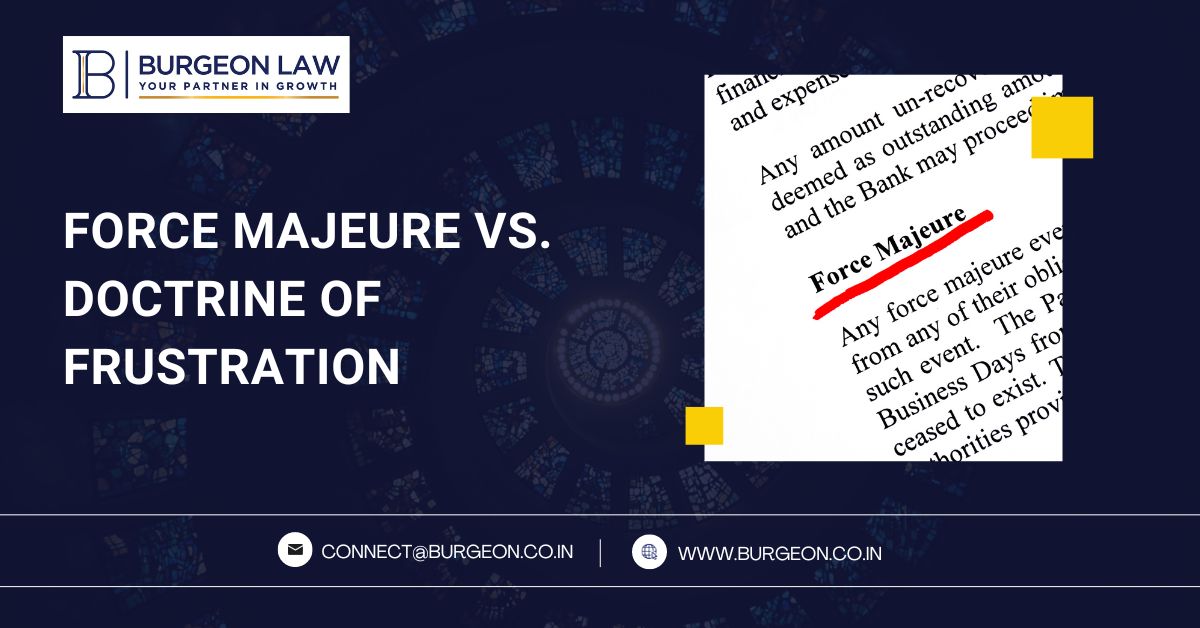Force majeure and the doctrine of frustration are both legal concepts that relate to situations where contractual obligations cannot be fulfilled due to unforeseeable events beyond the control of the parties. Wherein, force majeure is a contractual provision that allows parties to suspend or terminate their obligations under the contract if events such as natural disasters, wars, or government actions occur. The definition and scope of force majeure are usually specified in the contract. On the other hand, the doctrine of frustration is a legal concept that applies when an unforeseeable event, beyond the control of the parties, occurs and makes the contract impossible to perform or radically changes its nature. In India, the Indian Contract Act, 1872, provides for the doctrine of frustration, and the courts have interpreted it in various cases.
Legal Provisions and essentials for invoking Force Majeure and the Doctrine of Frustration
Force Majeure
Section 32 of the Indian Contract Act, 1872 deals with the issue of contingent contracts. According to this provision, when a contract is contingent on the happening of a future event, and that event becomes impossible to perform, the contract becomes void. Provided further that in order to classify as an force majeure an event shall be beyond the control of the parties and certain conditions precedent in the contract like the defaulting party must serve a notice to the other party shall have been fulfilled amongst the other things. These conditions for invocation of the defence for non-performance shall be fulfiled, failing which a party may not be able to take the defence of Force Majeure.
Doctrine of Frustration: Section 56 of the Indian Contract Act, 1872 deals with the doctrine of frustration. It states that a contract becomes void when its performance becomes impossible due to an event beyond the control of the parties. This event must not have been foreseeable at the time of the contract’s formation. This provision is applicable only in cases where the contract does not contain a force majeure clause. The doctrine of frustration is also recognized by the Indian courts and applies to all contracts, whether they are express or implied and is not limited to cases where the event that causes frustration is unforeseeable. Instead, it applies whenever an event occurs that makes the contract impossible to perform.
Conclusion
The doctrine of Force Majeure and doctrine of frustration of contract or impossibility to perform are complexly related to each other. It can be said that the doctrine of frustration of contract is an aspect or part of the law of discharge of contract by reason of a supervening impossibility or illegality of the act agreed to be done. Unlike Force Majeure clause, which is typically in the form of a contractual provision, frustration of contract or impossibility to perform is statutorily provided under Section 56 of the Contract Act.
In another words, force majeure is a contractual provision, whereas the doctrine of frustration is a legal principle that applies in the absence of a force majeure clause in a contract. Both concepts deal with situations where performance of the contract is impossible, but the specific circumstances that trigger each of them and their consequences may differ.

